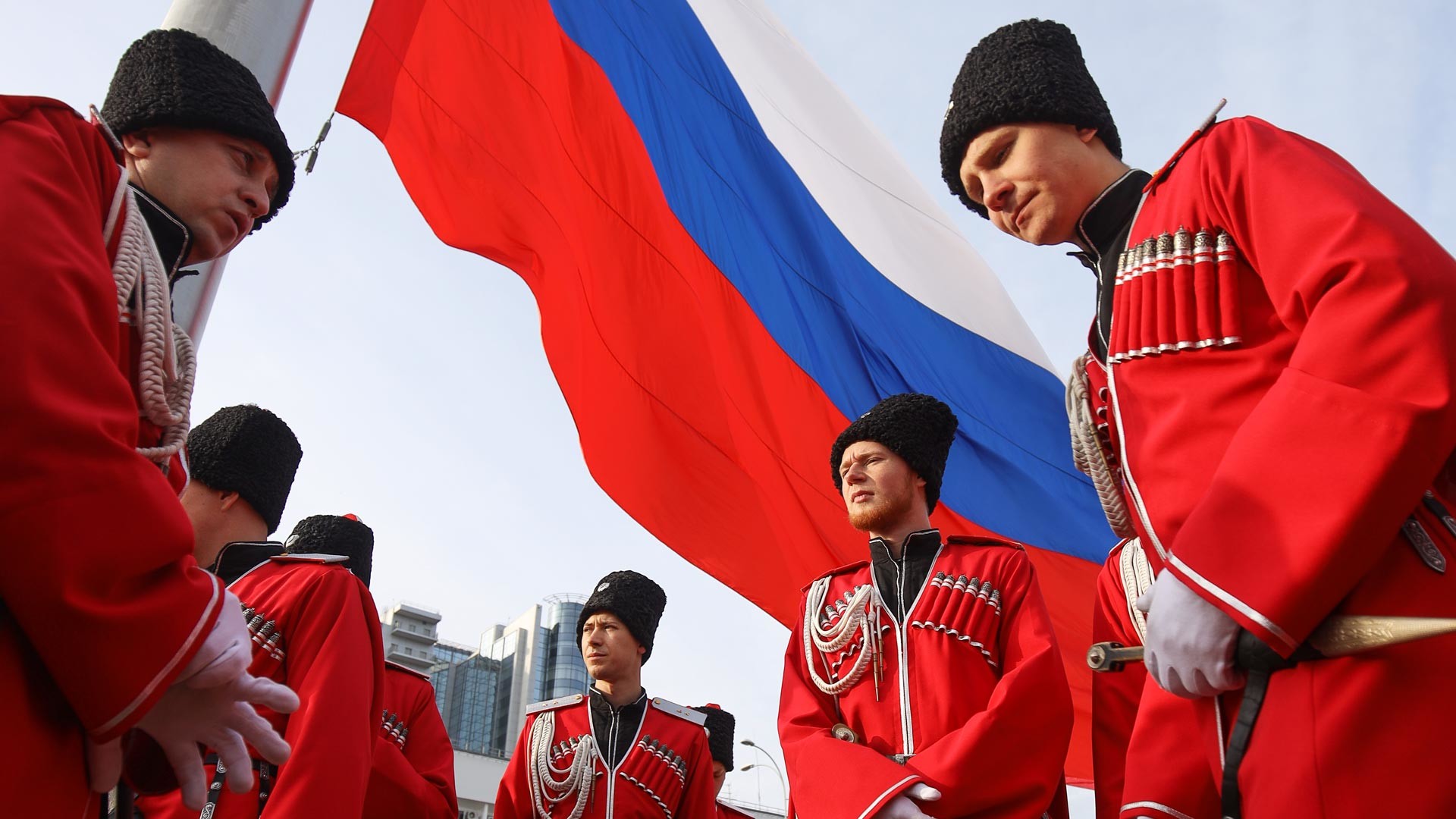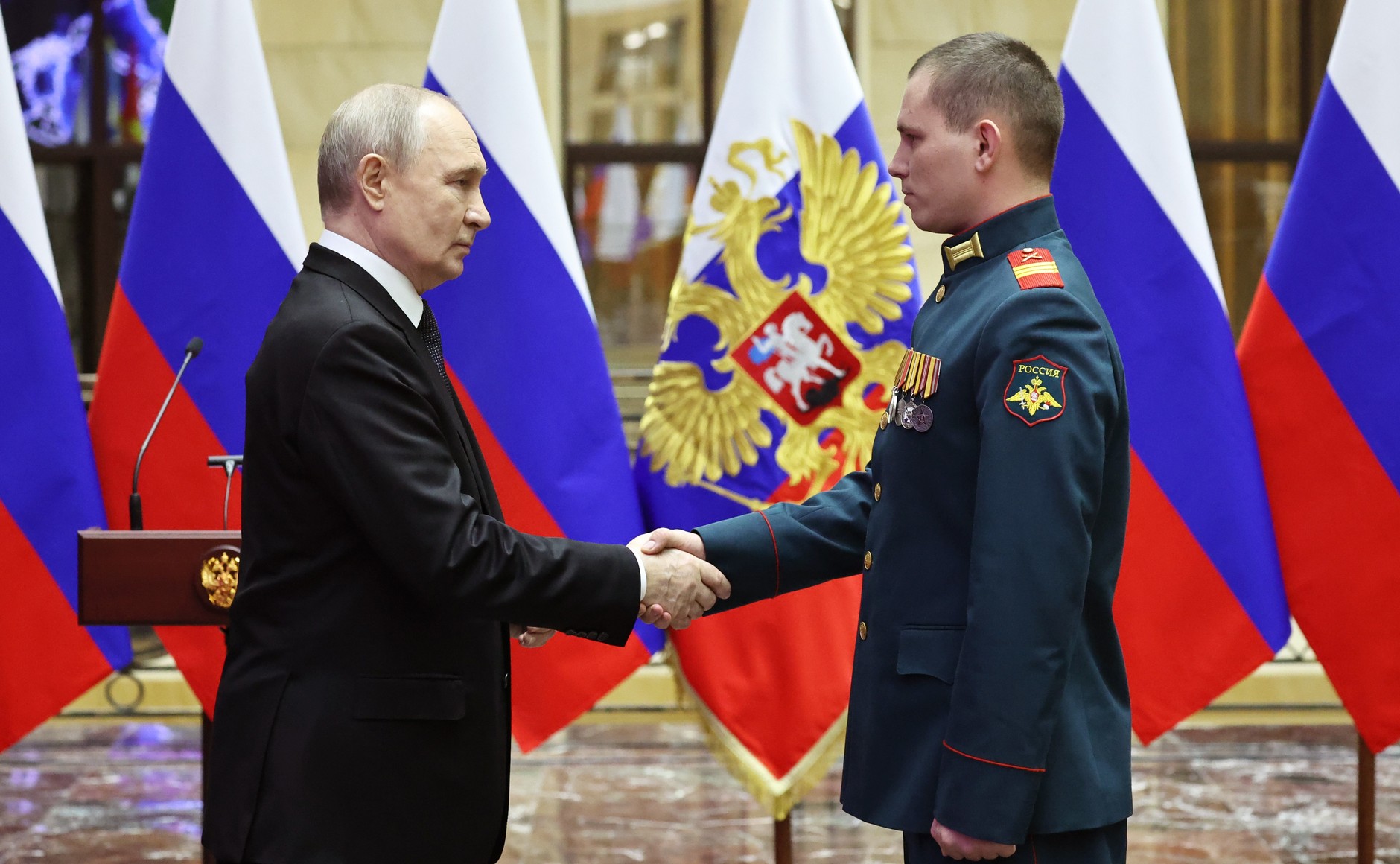
Russian National Unity Day Against the Backdrop of the War in Ukraine
Russian National Unity Day Against the Backdrop of the War in Ukraine
One of the new holidays introduced by the Kremlin, which was invented in response to the alleged impending threat of a color revolution within the country, Russian National Unity Day, will be held annually on November 4. Ostensibly commemorating the liberation of Moscow from the Polish intervention led by Kuzma Minin and Prince Dmitry Pozharsky in 1612, the holiday also honors “the Zemsky sobor a few months after the liberation of the capital, which included representatives from all classes in the country, including nobility, boyars, clergy, Cossacks, delegations from Russian cities and ordinary peasants, [who] elected a new Tsar—Mikhail Fedorovich—from the Romanov dynasty.” This event marked the end of the so-called “Time of Troubles” in Russian history—a period that chimed with the end of Russia’s second “time of troubles” in the 1990s (5-tv.ru, November 4). While the holiday has been appropriated by neo-Nazi and ultranationalist groups in the past, the Russian state successfully wrested back control of its proceedings in 2017 (see EDM, November 6, 2017). The resonance of the holiday this year is especially poignant given Moscow’s genocidal re-invasion of Ukraine.
To begin with, the official line from Moscow was that the holiday would feature “an entertainment program for citizens, including solemn processions, rallies of various political parties, sports events, concerts, and charity events. … It will [also] be possible to park on the streets of Moscow for free” (5-tv.ru, November 4). Falling on a Friday this year, National Unity Day also offered the chance for a long weekend. The real significance of the holiday is much more than that, however, and indeed “this year, when the country is participating in a special military operation in the defense of its new borders the Day of National Unity has a special symbolism. Now, Russians are more united than ever in support of their soldiers on the front lines to confront the collective West, which every day announces new sanctions, cancellations, and restrictions. … When, if not on the Day of National Unity should we show that our country has a multinational composition, dozens of different nations and nationalities, differing on grounds including religion but all of them live in solidarity with each other, in peace and tolerance” (Newizv,ru, October 26). As such, the Vladimir Putin regime is using the holiday as an opportunity for national consolidation.
Additionally, despite the ban on gatherings for ordinary Russians and the commandeering of the holiday by the Putin regime, the nationalist opposition is still trying to hold the traditional “Russian March,” in which nationalists of different stripes come together to demonstrate and make their presence known. The nationalist opposition blames the “irresponsible policies and aggressive militaristic propaganda of the internationalists” for the crisis in Ukraine, which is bringing “the world to the brink of World War III.” They also say that “Russian and European nationalists remain the last hope of white peoples for stable and peaceful development.” These nationalists planned to hold the Russian March “in the format of meetings of like-minded people with the subsequent holding of humanitarian or cultural events that do not require approval, but little information is available on if they did indeed hold the march. Actions will only be held in cities where mobilization has officially ended,” but they will do so in a secretive fashion to prevent obstruction by the Russian authorities. In the context of the invasion of Ukraine, the appeal of the Russian March may indicate the strength, or otherwise, of the opposition—even while some are openly racist and many are against the war in Ukraine (Rmarsh.info, November 2). At the time of writing, there were no reports of nationalist opposition groups using the symbolic occasion to contest its appropriation by the state—in and of itself perhaps a testimony to the remote chances of a prospective coup attempt in Russia.
Regime-sponsored events certainly seem to have been more widespread and impactful in 2022. The activities of the Russian heartland were epitomized by celebrations in Smolensk, where “as in the whole country … all regions of the oblast proceeded with concerts and other solemn meetings” (Mk-smolensk.ru, November 4). The resonance of the holiday was always most likely to be felt strongest in the peripheral regions of the Russian Federation—including in the newly annexed (Ukrainian) territories. In Stavropol, for instance, a school relay race was held under the slogan, “We are united and in this is our strength,” during which other schoolchildren wrote letters to Russian soldiers carrying out the “special military operation.” The mayor of the city, Ivan Ul’yanchenko, declared in an official statement that “support of the president and the Russian army in the time of the special military operation in Ukraine—this is the duty of every patriot of the country” (Kavkaz.mk.ru, November 4). In the new “Russian” region Zaporozhye, other than an official statement on Telegram from the regional administration reminding people of the importance of the holiday, no such celebrations were held (Zp-news.ru, November 4).
The state-organized Cossack movement reminded followers that the central organization was created on November 4, 2019; announced an increase in the number of Cossacks deployed to Ukraine to 10,000; and declared, “The accession to Russia of the Donetsk and Luhansk People’s Republics, Zaporozhye and Kherson regions was a moment of truly strengthening state power. These annexations represent a re-addition of ancestral lands, as well as citizens who speak the Russian language, think in Russian and are devoted to the shrines of the Russian world and are returning to its flags. And today, we are united in defending the lands of Luhansk, Donbass, Zaporozhye and Kherson regions” (Vsko.ru, November 3). Thus, all this indicates an expanded role for Cossacks loyal to the Kremlin in its ongoing illegal invasion of Ukraine.


